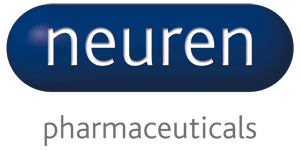
Posted: 4 July 2023
Neuren Pharmaceuticals (ASX: NEU) today announced that enrolment of subjects into its Phase 2 clinical trial of NNZ-2591 in Phelan-McDermid syndrome has now been completed. Topline results from the trial are expected to be available in December 2023.
Neuren CEO Jon Pilcher commented “We are grateful to all the people at the trial sites in the United States and in the Phelan-McDermid community who have contributed to achieving this important milestone as we strive to develop a potential therapy. We now look forward to the remaining patients completing the trial and to releasing the first results of treatment with NNZ-2591 in children with Phelan-McDermid syndrome.”
Neuren is also conducting Phase 2 clinical trials of NNZ-2591 in children with three other neurodevelopmental disorders – Pitt Hopkins syndrome, Angelman syndrome and Prader-Will syndrome. Results from these trials are expected to follow during 2024. All four programs have been granted Orphan Drug designation by the US Food and Drug Administration (FDA) and are being developed under Investigational New Drug (IND) applications. Each syndrome is a seriously debilitating neurological disorder that emerges in early childhood and has no or limited approved treatment options.
About the Phelan-McDermid syndrome Phase 2 trial
The open label Phase 2 trial in up to 20 children aged 3 to 12 years at four hospitals in the United States is examining safety, tolerability, pharmacokinetics and efficacy over 13 weeks of treatment with NNZ2591. All subjects receive NNZ-2591 as an oral liquid dose twice daily, with escalation in two stages up to the target dose during the first 6 weeks of treatment, subject to independent review of safety and tolerability data. The study begins with at least 4 weeks of observation to thoroughly examine baseline characteristics prior to treatment, against which safety and efficacy are assessed for each child. This is followed by the treatment period of 13 weeks. A follow-up assessment is made 2 weeks after the end of treatment.
The overall aim of this first clinical trial in patients is to expedite the generation of data that will enable the subsequent trial to be designed as a registration trial. In order to accelerate the overall development plan, in parallel with conducting the Phase 2 trial Neuren is executing the additional development work required to be ready for Phase 3 development.
About Phelan-McDermid syndrome
Phelan-McDermid syndrome (PMS) is caused by a deletion or other change in the 22q13 region of chromosome 22, which includes the SHANK3 gene, or a mutation of the gene. PMS is also known as 22q13 deletion syndrome. The SHANK3 gene codes for the shank3 protein, which supports the structure 2 of 2 of synapses between nerve cells in the brain. It is estimated that between 1 in 8,000 and 1 in 15,000 people have PMS. There are no medications, drugs, or therapies specifically for PMS.
The most common characteristics are moderate to severe developmental and intellectual impairment and developmental delay, delayed or absent speech, symptoms of autism (approximately 75% are diagnosed with autism spectrum disorder), low muscle tone, motor delays, mild to severe epilepsy, difficulties with toilet training and problems with eating.



